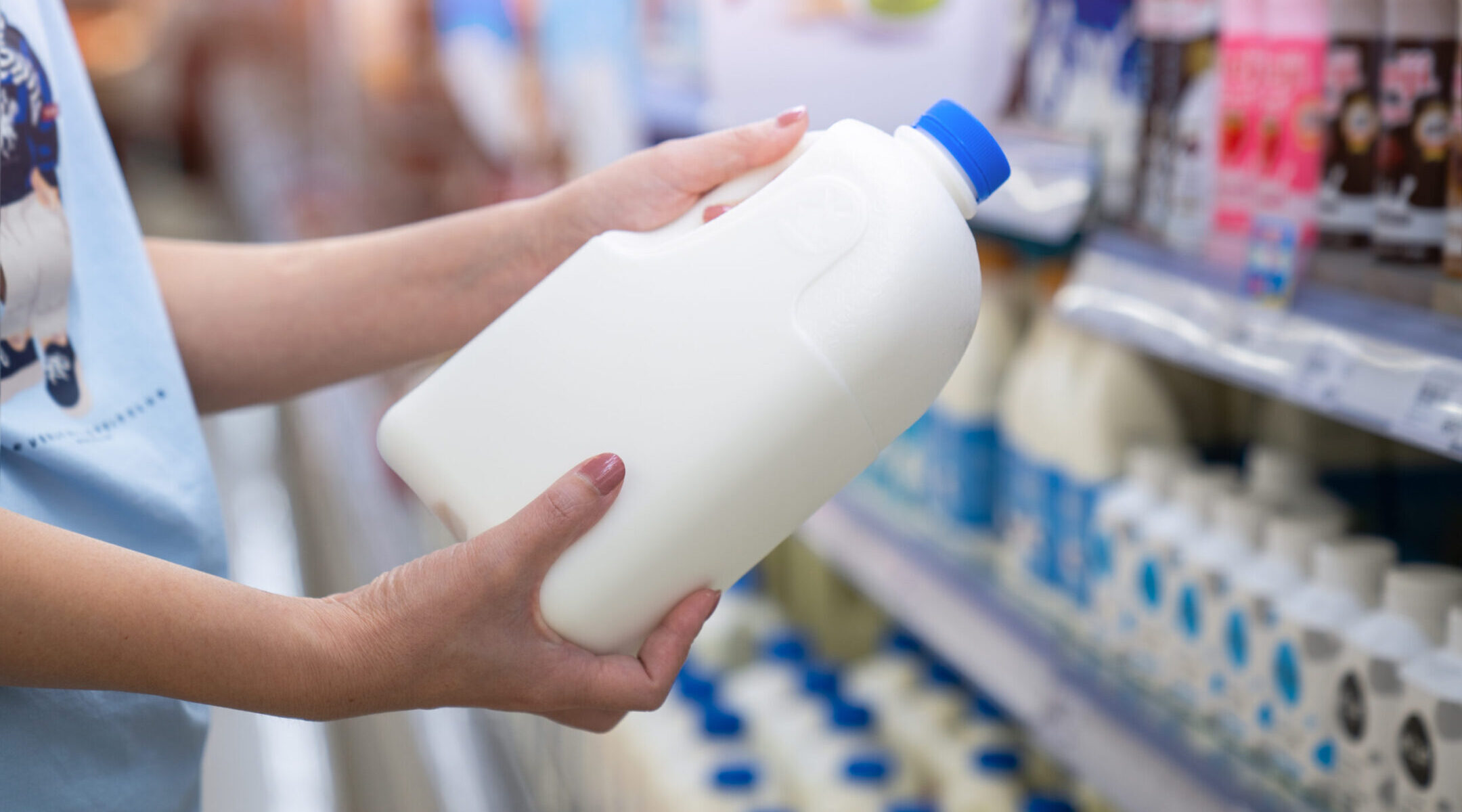As soon as news broke this week that the Food and Drug Administration was suspending federal testing of commercially produced milk, the Orthodox Union’s hotline lit up.
The flood of inquiries was “off the hook … crazy: emails, calls, WhatsApp, everything,” said Rabbi Avrohom Gordimer, chair of the dairy committee at O.U. Kosher, the most recognizable kosher certifier in the United States.
The callers were all anxious about the potential implications of the policy change on the kosher status of milk. Since 1954, most kosher-keeping American Jews have relied on an influential rabbi’s determination that government oversight of milk production is sufficient to render commercially produced milk kosher.
The rabbi, Moshe Feinstein, was dealing with an age-old problem of Jewish law when he made his ruling.
According to halacha, or traditional Jewish law, milk is only kosher if it comes from a kosher animal. One way to ensure that is the case is to consume only milk produced in a facility where Jews oversee every step of the process — relatively easy to accomplish in the pre-modern world, but less practical in the contemporary United States.
Feinstein — considered one of the most important Jewish legal authorities of the 20th century — addressed the challenge by ruling that government regulations could effectively take the place of some aspects of Jewish supervision. Because the U.S. government both requires that only cow’s milk be called milk, and because inspectors are regularly dispatched to milk production facilities to ensure that all legal requirements are upheld, Jews could assume that commercial milk does not contain milk from non-kosher animals, Feinstein concluded.
Rabbi Moshe Feinstein with Rabbi Yona Shtencel at a wedding. (Wikimedia Commons)
His opinion was so decisive and pivotal that the Orthodox Union cites it on its landing page for queries about milk. But what happens if the federal government overhauls or abandons its oversight of milk?
Nothing, at least for now. That’s what Gordimer and his team have concluded after seeking to understand just what has changed at the FDA.
“This development has no impact whatsoever on the kosher status of ‘chalav stam’ (regular commercial milk) that Rabbi Feinstein permitted in the US, as the primary oversight of farms and dairy factories is performed by state governments; the FDA is a mere secondary body for this purpose,” he said by email.
What’s more, Gordimer said, the testing that Kennedy suspended is meant only to detect certain contaminants and prohibited additives. Physical inspections, which he said are continuing uninterrupted, are different, and key to Feinstein’s ruling.
“There has been no change in inspections, which are ongoing,” Gordimer said.
Plus, the law prohibiting anything other than cow’s milk being sold as “milk” remains on the books.
Still, the reports about changes have prompted concerns from kosher consumers. “Are we seeing the first step in the end of chalav stam…” one person asked in the Facebook group Great Kosher Restaurant Foodies.
Some Jews have rejected Feinstein’s opinion and instead limited their consumption to cholov yisroel milk, which is overseen by Jews throughout the production process. But it tends to be harder to find and more expensive.
A kosher-keeping critic of President Donald Trump tweeted about the regulatory changes, “If I have to go cholov yisroel because of Tronald Dump my head might explode.”
Even as OU Kosher — as well as health experts — says the current changes are no cause for concern, the scaling back of milk testing offers an early sign that kosher supervisors will need to pay attention to sweeping changes underway under the Trump administration. Trump’s secretary of health, Robert F. Kennedy Jr., has broad and unorthodox views on a number of topics and has promised to shake up everything from fluoridation in water to vaccines to food additives.

In this photo illustration, Froot Loops are on display on Nov. 22, 2024 in Miami, Florida. Robert F. Kennedy has said that he is concerned that Froot Loops along with other processed foods are a potential health danger for consumers. (Joe Raedle/Getty Images)
This week, he announced plans to ban synthetic food dyes. Mounting concerns about synthetic dyes, which are widely used in commercial food production, have caused producers to turn to natural alternatives — such as cochineal extract, a derivative from parasitic bugs that is a powerful substitute for red dyes.
Cochineal extract, called carmine, is not kosher, meaning that kosher supervisors may need to retract certification of some items if their producers opt to replace synthetic reds with it. That happened with some forms of Tums, the heartburn relief medication, in recent years, according to a 2021 alert from the Chicago Rabbinical Council, which like the OU certifies products and offers guidance to kosher consumers.
But it’s also possible that producers will keep kosher-keeping customers in mind as they adjust to Kennedy’s decrees. Paulaur, which produces sprinkles and other food toppings, recently dropped its use of Red 3, a synthetic dye, the Wall Street Journal reported last month — but turned to beetroot juice and purple sweet potatoes as coloring agents so it could continue to sell kosher products.




